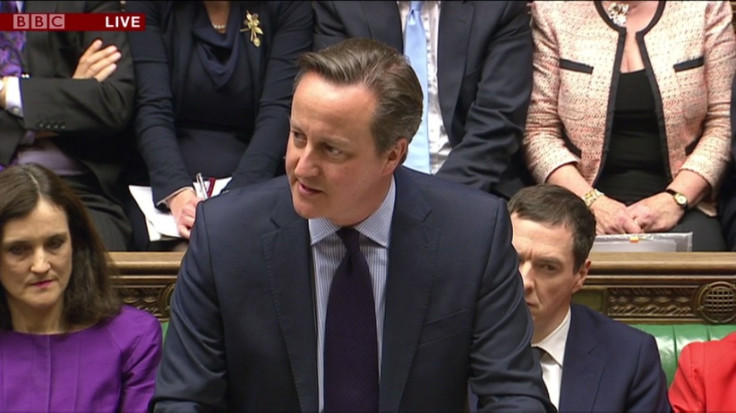War on Isis: David Cameron's lack of post-war Syria strategy should frighten us all

There were few surprises in David Cameron's address to the Commons on Britain's intervention against Islamic State (Isis). While his desire to act to end Syria's bloody four-and-a-half-year war is commendable, the strategy has worrying echoes of previous UK interventions in Libya, Iraq and Afghanistan.
His rhetoric – 'We have to hit these terrorists in their heartland right now' – was reminiscent of the 2001 justification for the bombing of the Taliban in Afghanistan following 9/11, while his talk of a post-Assad government draws worrying parallels to our horrific and long-lasting failures in Iraq. After nearly 15 years of bloodshed in both countries, that is a terrifying prospect for both the Middle East and the wider world.
But the biggest concern is the similarity to Libya, where Britain rightly intervened to support pro-democracy militias fighting the regime of Muammir Gaddafi. There, a post-conflict strategy was cited and, as Cameron alluded to in the House of Commons, it was an abject failure. The chaos engulfing that country is not – as the left would like to think – the result of our military intervention, but our neglect of Libya since.
Cameron blamed that failure on the fact Libyan institutions had languished under 40 years of Gaddafi dictatorship and when he fell, they did also. He said, very unconvincingly, that the same was not true for Syria. But the same is absolutely true in Syria under Assad and Cameron needs to accept that: when and if Assad falls, Syria will need ten times the work that Libya needed (and did not receive) to build a government.
The PM lauded the victories of so-called 'moderate Sunni militias', the Free Syrian Army and the Kurds but none of these groups are anywhere close to forming a consensus or even an alliance in Syria at a time of war – let alone at a time of peace. The Kurds have little interest in expanding into the Sunni tribal heartlands that IS currently occupies and the FSA and moderate Sunnis are ineffectual, aside from a few recent victories. The 70,000 'moderate forces' Cameron speaks about sounds at the best wishful thinking, and at worst fiction.
Iraq is on the brink in 2015, racked by sectarian divisions, corruption and terrorism, with its second city under the control of a brutal jihadi terrorist group. Iraq in 2003 had a strong, established and battle-hardened Kurdish force in the north as well as major figures in exile of varying credibility – Ahmed Chalabi and Haidar al-Abadi among them – that could be groomed to lead a post-Saddam nation. It also has massive oil reserves and all the economic prospects that that entails. Iraq had potential, although it went horribly wrong.
But what does Syria have? How many exiles or credible anti-Assad political movements can Britain and its international allies rely on in a post-Assad Syria? The answer is none. Assad has operated a brutal dictatorship for 15 years, with his father in control for 30 years before that. Cameron told the Commons all the backers of a future state in Syria were present in Vienna but that isn't true – there aren't any Syrians there. It is all very well to talk about a future transitional government in Syria, but nobody – Cameron included – seems to know who will take part.
Britain should absolutely take a role in Syria. Our failures to do so since 2012 are shameful and since then IS has not only killed scores of European citizen but tens of thousands of Arabs and minorities in Iraq, Syria, Libya, Egypt, Saudi Arabia and Lebanon. But Britain has to enter the Syria conflict with its eyes open, and fantastical talk about transitional governments, elections and building institutions does not help it do that. Syria is a messy, complex and devastatingly brutal conflict. Cameron admitted as much – but that is not enough.
We can't forget our history in the Middle East: our mistakes are too grave, our burden too great. It is too easy to say – as too much of the left does – that our interventions in Iraq and Afghanistan created IS. In fact, it was our failures once those wars, just or otherwise, were over that created the mess that gave such succour to jihadi groups such as IS and al-Qaeda. Cameron's lack of post-war strategy on Syria, displayed today in the Commons, should terrify us all.
© Copyright IBTimes 2025. All rights reserved.





















